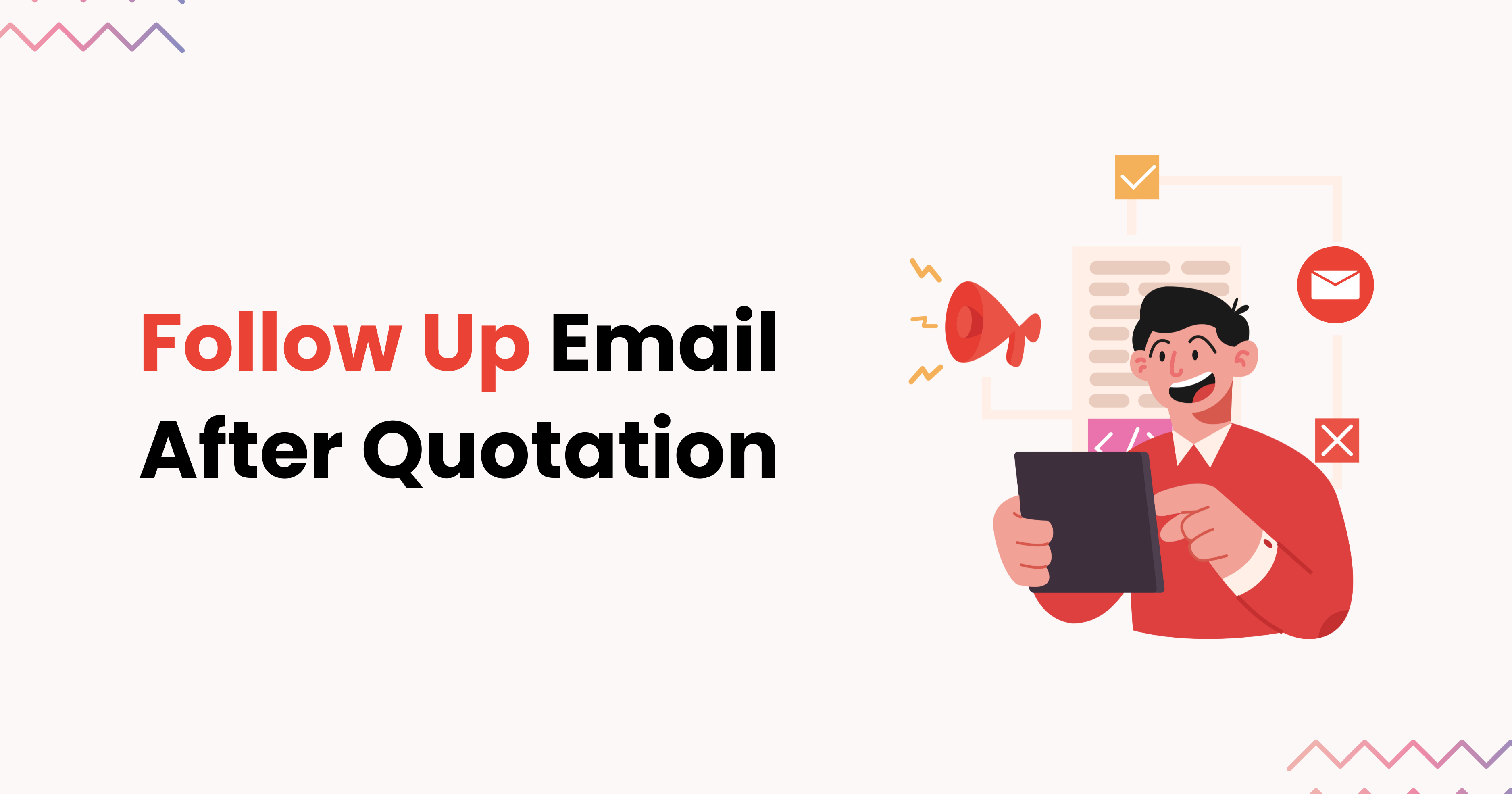It's a friendly reminder to your client about a quotation, nudging them to make a decision.

So, follow-up emails—they might just be your secret weapon for sealing those deals. Whether you’re hustling in sales or running your own gig, mastering the art of the follow-up email after quoting can give your close rate a real shot in the arm. Let’s get into why this is a crucial piece of the sales puzzle.
A follow-up email after a quotation? It’s like a gentle tap on the shoulder for your potential clients, giving them a little nudge to remind them of your proposal. In sales, it’s often the difference between sparking interest and getting a firm yes.
In my sales journey, over 70% of business happens because of consistent follow-ups. It feels nice to know someone cares about your decision, right? By reaching out politely, you not only show you’re dedicated but you’re also strengthening that budding relationship.
These emails aren’t just reminders. They help clients remember your offer, clarify doubts, and provide more info. A staggering 80% of sales need at least five follow-ups. Here’s why they’re vital:
Research shows it takes about eight interactions to turn a maybe into a yes. Use each follow-up wisely to sharpen your approach.
Let’s look at some ways to draft follow-up emails that hit the mark:
Personalize based on your last interactions. Use their name, recall specific details, and reference that quotation. It makes your message feel genuine.
Shoot for 3 to 5 days post-quotation to send that follow-up. It’s the sweet spot where your quotes are still fresh in their minds.
Include a direct call to action. Whether asking for a decision or setting up a chat, make it easy for them to engage.
Incorporate open-ended questions to spark dialogue. Try something like, “What do you think about our proposal?” It could lead to insightful conversations.
Remind them why your offer is worth their time. Highlight benefits and how your solution stands tall against competitors.
For maximum impact, here’s what you should aim for:
Respect their time. Be clear and avoid the fluff.
Keep it professional, sure, but don’t hesitate to add a personal touch. It makes emails feel less robotic.
Check for typos or grammar slip-ups. A smooth email gives a good impression of your attention to detail.
Save time with templates, but always customize. Balance efficiency with authenticity.
Pay attention to what works. Monitor open and response rates and tweak your approach.
To figure out how well your follow-ups are performing, keep tabs on:
Use email tracking tools to gather these insights—so remember, data is your ally in refining your strategy.
Crafting the perfect follow-up email after a quotation? It’s an art that can help boost sales like nothing else. Stick with smart strategies and best practices, and watch your success soar.
Never underestimate the simple follow-up. Make it part of your daily routine and notice the massive difference it makes in your sales game.
Excited about boosting your email efforts? Start using these follow-up techniques now!
It's a friendly reminder to your client about a quotation, nudging them to make a decision.
It keeps you on your potential client's radar and boosts your chances of closing the deal.
Make sure to have a clear subject line, remind them of the quotation, and a call to action.
Aim for 3-5 days after sending the initial quotation.
Personalizing greetings, summarizing the quotation, and being direct about next steps engage clients effectively.
We’re here to help. Whether it’s about features, pricing, or getting started with InboxPlus